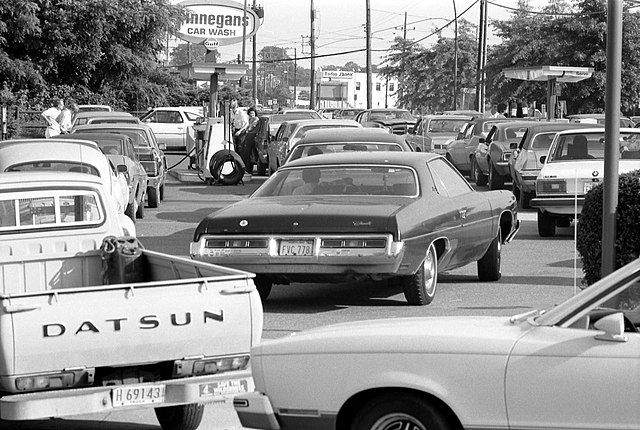A drop in oil production in the wake of the Iranian Revolution led to an energy crisis in 1979. Although the global oil supply only decreased by approximately four percent, the oil markets' reaction raised the price of crude oil drastically over the next 12 months, more than doubling it to $39.50 per barrel ($248/m3). The sudden increase in price was connected with fuel shortages and long lines at gas stations similar to the 1973 oil crisis.
Line at a gas station in Maryland, United States, June 15, 1979.
An energy crisis or energy shortage is any significant bottleneck in the supply of energy resources to an economy. In literature, it often refers to one of the energy sources used at a certain time and place, in particular, those that supply national electricity grids or those used as fuel in industrial development. Population growth has led to a surge in the global demand for energy in recent years. In the 2000s, this new demand – together with Middle East tension, the falling value of the US dollar, dwindling oil reserves, concerns over peak oil, and oil price speculation – triggered the 2000s energy crisis, which saw the price of oil reach an all-time high of $147.30 per barrel ($926/m3) in 2008.
The gasoline shortages of World War II brought about the resurgence of horse-and-wagon delivery.
Kuwait's Al Burqan Oil Field, the world's second-largest oil field



